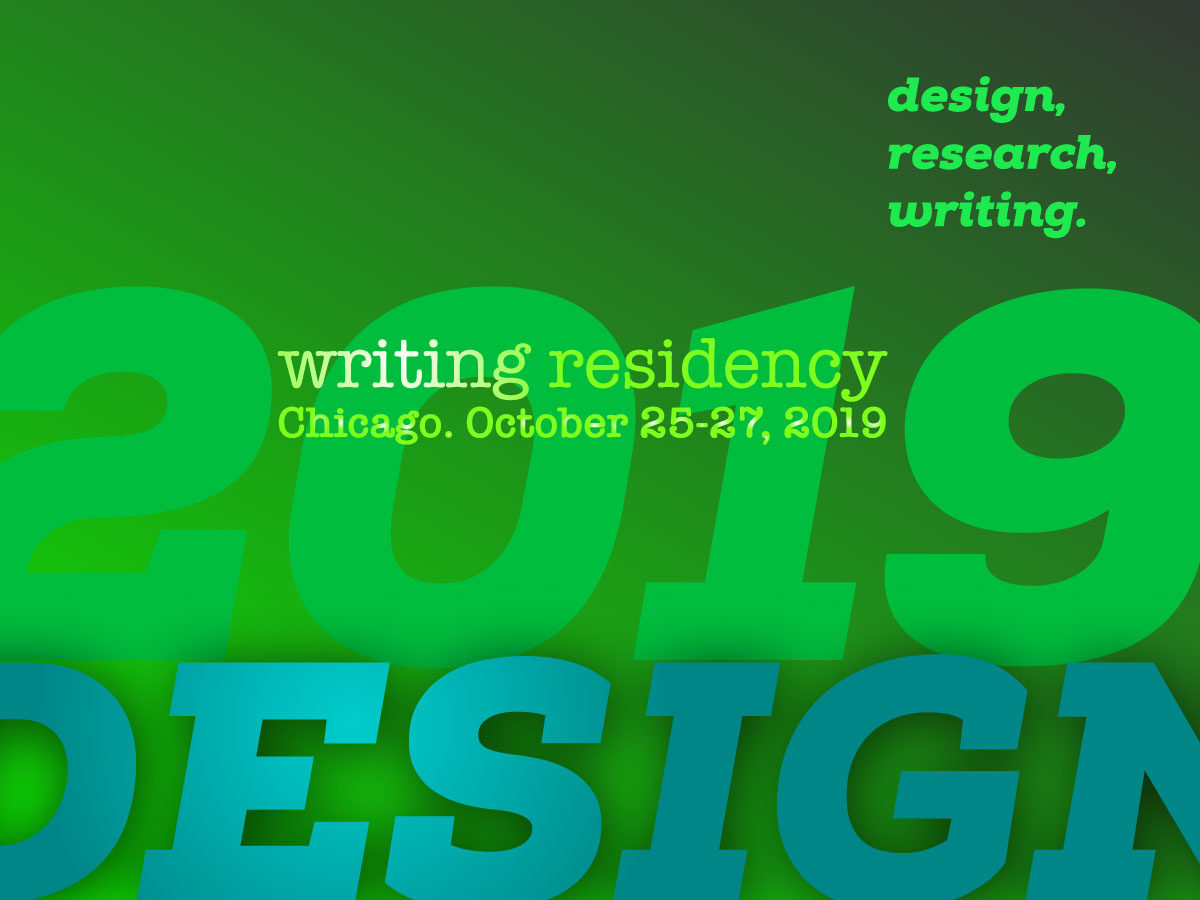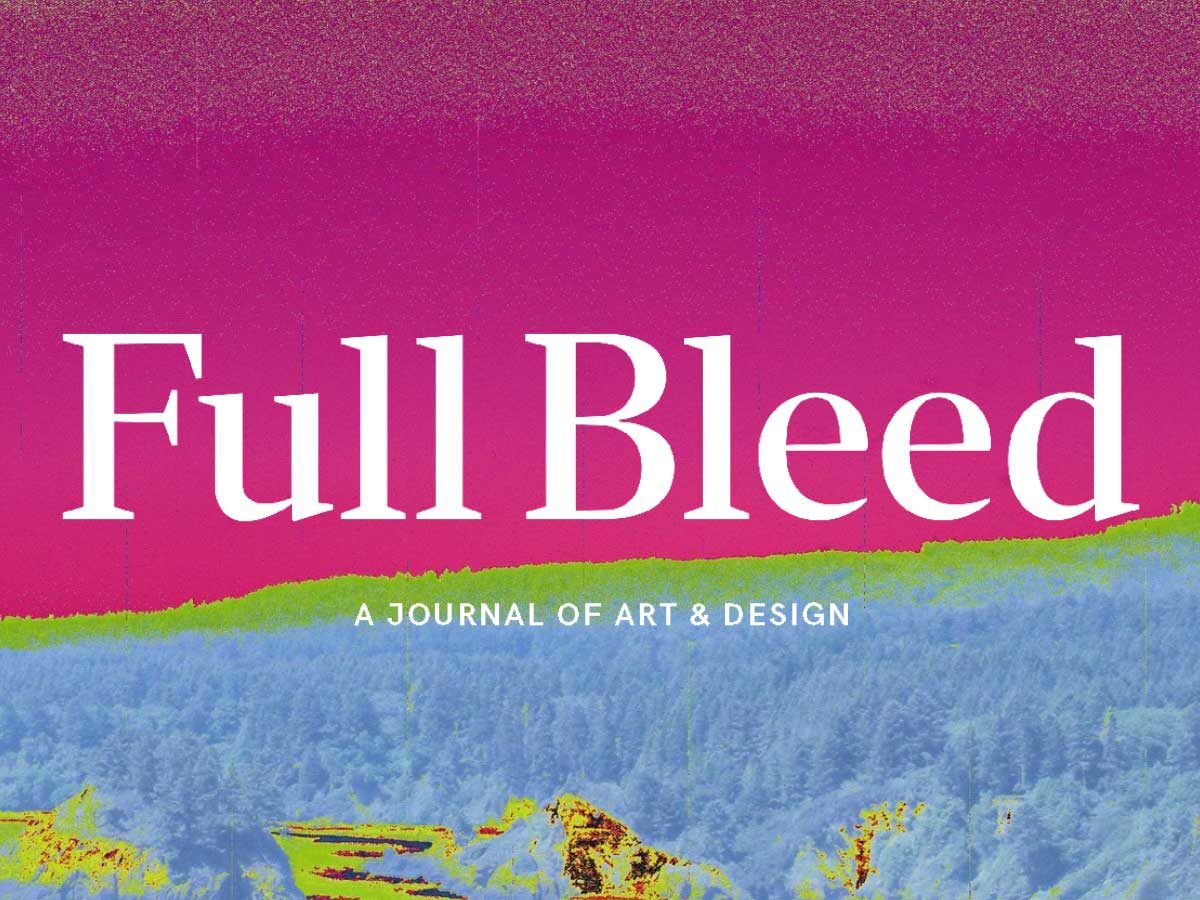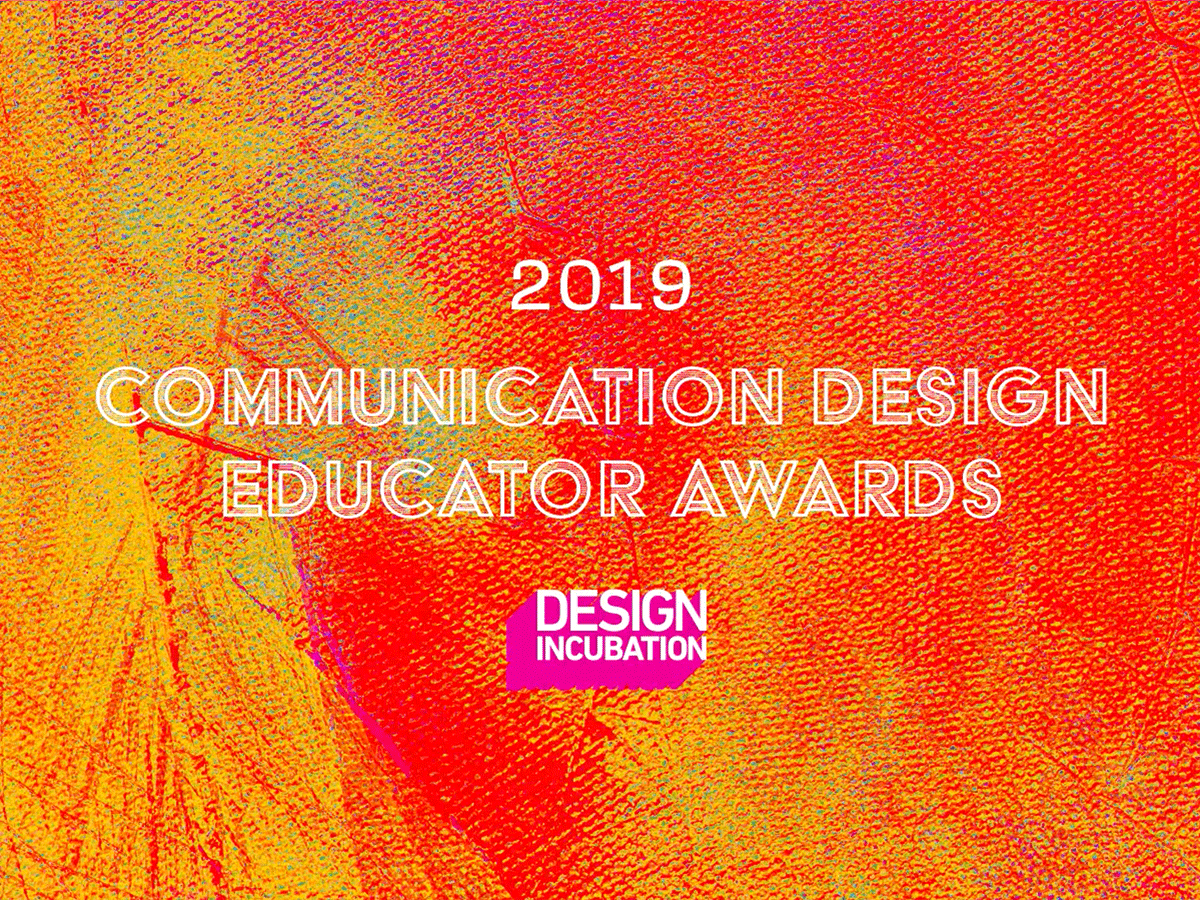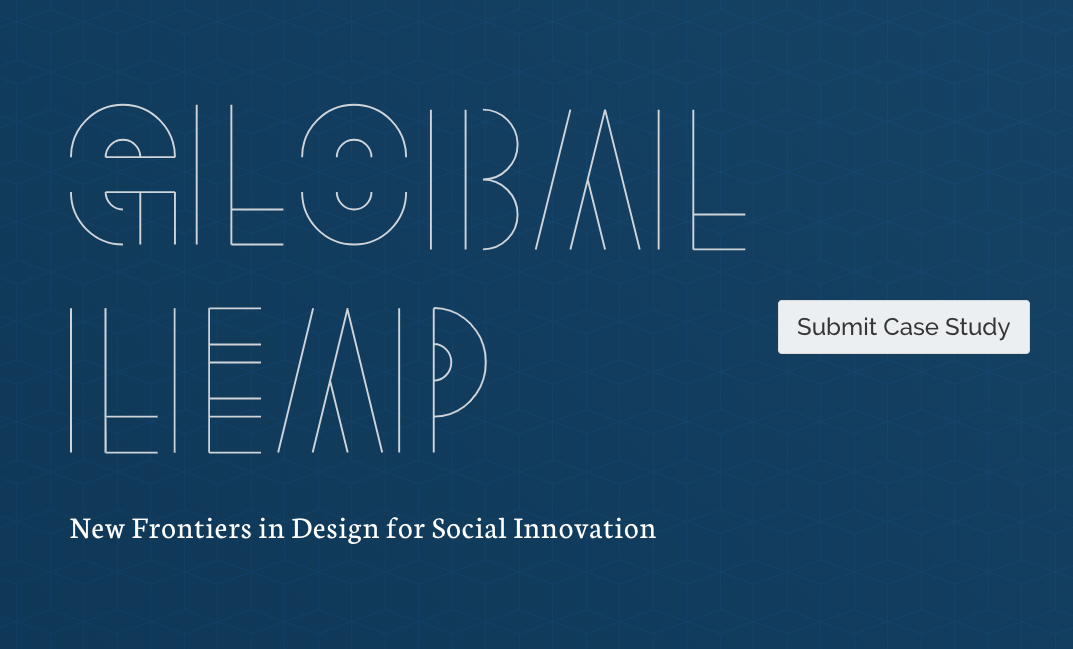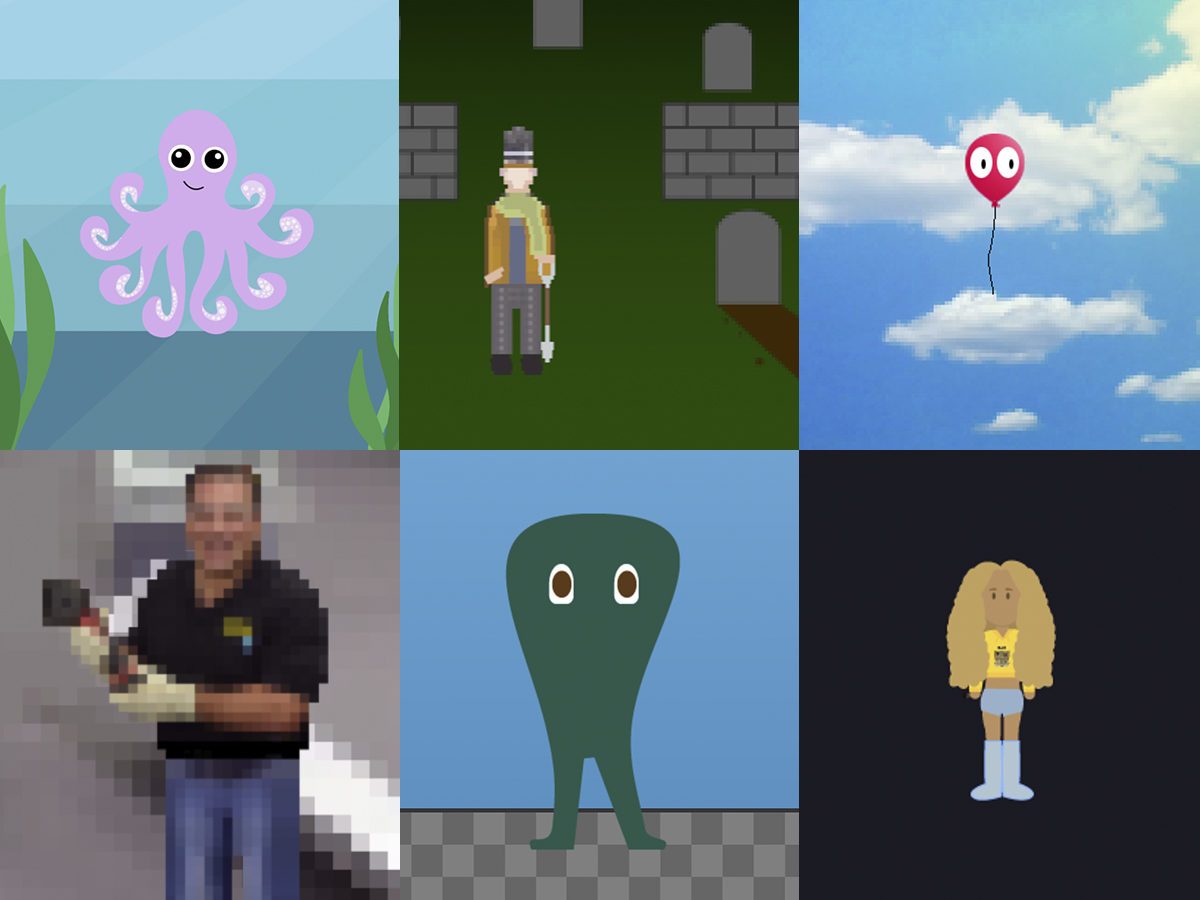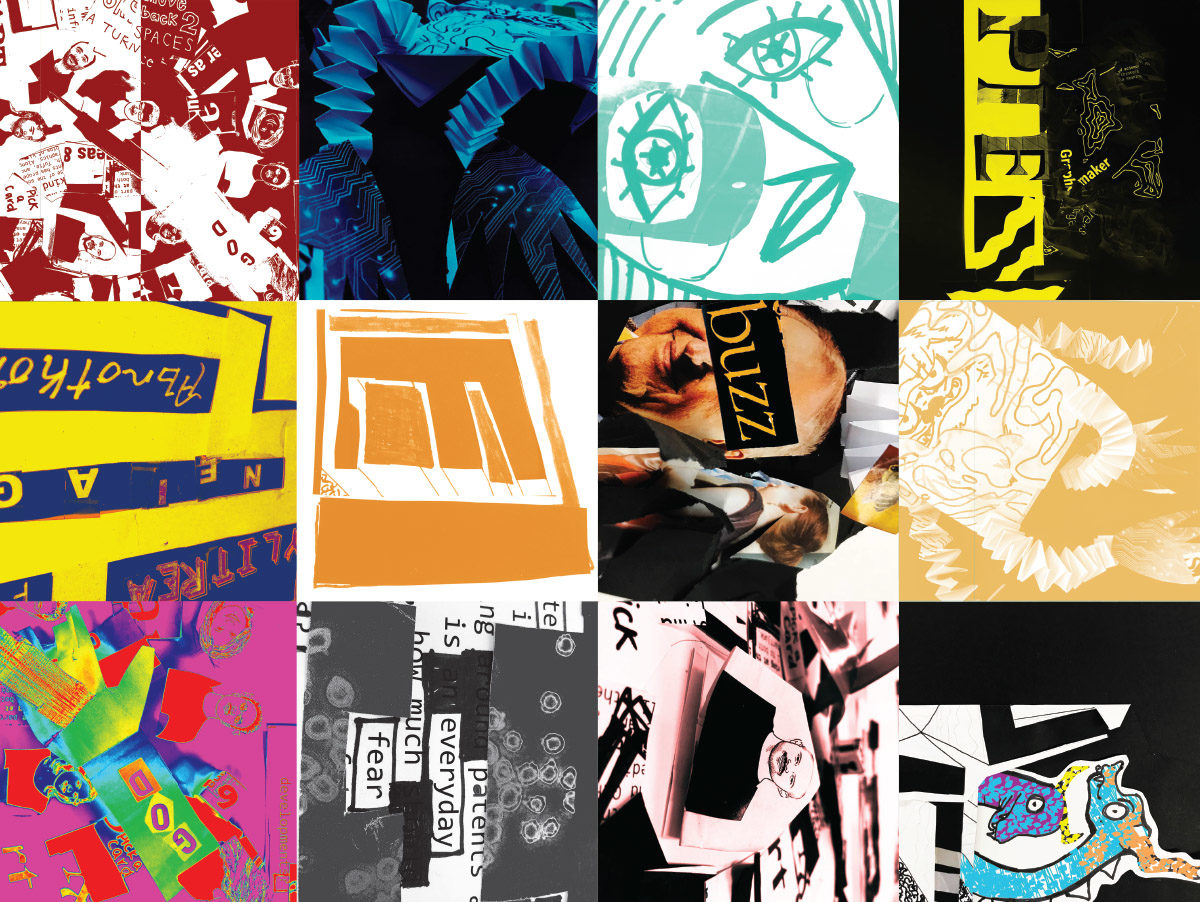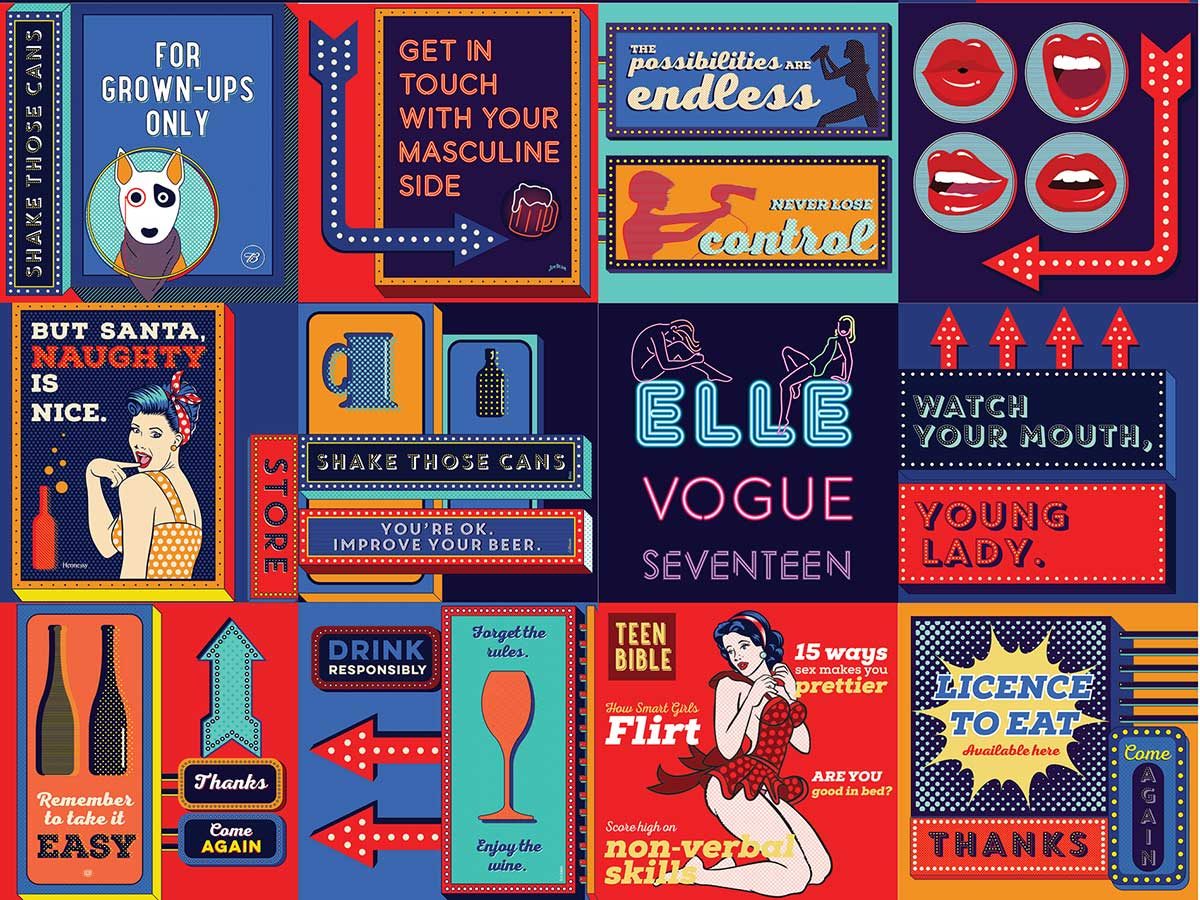Congratulations to the 2019 awardees:
SCHOLARSHIP—CREATIVE WORK AWARD
Sharon Oiga, Associate Professor, University of Illinois at Chicago;
Guy Villa Jr, Assistant Professor, Columbia College Chicago and
Daria Tsoupikova, Associate Professor University of Illinois at Chicago (with Jack Weiss, Chicago Design Archive;
Cheri Gearhart, Chicago Design Archive;
Wayne Stuetzer, Chicago Design Archive;
Krystofer Kim, Lead Animator, NASA; and
Ali Khan, Animator, University of Illinois at Chicago)
Warren Lehrer, Professor, SUNY, Purchase (with Dennis J Bernstein—poems)
Rebekah Modrak, Professor, University of Michigan;
Jamie Lausch Vander Broek, Librarian, University of Michigan; and
Sam Oliver, Designer, Shaper Realities
SCHOLARSHIP—PUBLISHED RESEARCH AWARD
Rachel Beth Egenhoefer, Associate Professor, University of San Francisco, Editor
Dori Griffin, Assistant Professor, University of Florida, Editor
R. Brian Stone, Associate Professor, The Ohio State University and
Leah Wahlin, Senior Lecturer, The Ohio State University, Editors
TEACHING AWARD
Jonathan Hannan, Assistant Professor, Emily Carr University of Art + Design
Evelyn Davis-Walker, Assistant Professor, Valdosta State University
Omari Souza, Assistant Professor, Texas State University
SERVICE AWARD
Katherine Mueller, Assistant Professor, Temple University
Kelly Murdoch-Kitt, Assistant Professor, University of Michigan and
Omar Sosa-Tzec, Assistant Professor, University of Michigan
JURY COMMENDATION for Diversity, Equity, and Inclusion
Maria Mater O’Neil, Adjunct Professor, Interamerican University, Fajardo Campus & University of Puerto Rico (Rio Piedras and Carolina Campus) and Lesley Anne Noel, Professor of Practice in Design Thinking, Tulane University
As the awards program enters its fourth year, we are committed to forming a jury of esteemed design educators with diverse perspectives and experiences. Design Incubation is pleased to announce the 2019 Communication Design Educators Awards jury, consisting of internationally recognized design educators: Audrey G. Bennett, Saki Mafundikwa, Steven McCarthy, Maria Rogal (chair), and Teal Triggs.
This awards program furthers Design Incubation’s aim to discover and draw attention to new creative work, published research, teaching, and service in our broad and varied discipline. We hope our colleagues will help to identify excellent contributions within their network and encourge faculty to submit their applications. New this year is a nominations period (through July 31st) and a timeline aimed that we hope avoids peak times in academic calendars. Information on the awards program in available on our website.
Nominations and entries can be completed online, in our awards call for entries.
About the Jury
Audrey G. Bennett is a tenured Professor of Art and Design at the Penny W. Stamps School of Art & Design at the University of Michigan in Ann Arbor. She is a former Andrew W. Mellon Distinguished Scholar of the University of Pretoria, South Africa, and a former College Art Association Professional Development Fellow. She studies the user-centered design of multimodal and intersensory images for communication across cultures. Her research publications include: “How Design Education Can Use Generative Play to Innovate for Social Change” (International Journal of Design); Engendering Interaction with Images (Intellect/University of Chicago Press); The Rise of Research in Graphic Design (Princeton Architectural Press); “Interactive Aesthetics” (Design Issues); and “Good Design is Good Social Change” (Visible Language). She is the co-editor of the Icograda Design Education Manifesto 2011, and a member of the Editorial Boards of the journals Image and Text (South Africa), and New Design Ideas (Azerbaijan).
Saki Mafundikwa is the founder and director of the Zimbabwe Institute of Vigital Arts (ZIVA) his country’s first graphic design and new media college. He has an MFA in Graphic Design from Yale University. He is a design educator, designer, author, filmmaker and farmer. His book, Afrikan Alphabets: the Story of Writing in Africa was published in 2004. Besides being of historical importance, it is also the first book on Afrikan typography. His award-winning first film, Shungu: The Resilience of a People premiered at 2009’s International Documentary Film Festival Amsterdam (IDFA). He has been published widely on design and cultural issues and is currently working on the first Afrikan Design Textbook.
Steven McCarthy is Professor of Graphic Design at the University of Minnesota in Minneapolis/St. Paul. He conceived of the Design Incubation Communication Design Educators Awards and chaired the jury in both 2016 and 2017. McCarthy’s teaching, scholarship, and contributions to the discipline include lectures, exhibitions, publications, and grant-funded research on a global scale. His creative work was featured in 130+ exhibitions and he is the author of The Designer As… Author, Producer, Activist, Entrepreneur, Curator and Collaborator: New Models for Communicating (BIS, Amsterdam). From 2014–2017, McCarthy served on the board of directors of the Minnesota Center for Book Arts.
Maria Rogal, Jury Chair, is Professor of Graphic Design and leads the new Design & Visual Communications MFA at the University of Florida. She is the founder of D4D Lab, an award-winning initiative to co-design with indigenous entrepreneurs and subject matter experts to generate sustainable local outcomes supporting self-determination. She has lectured and published about social and co-design, recently co-authoring “CoDesigning for Development,” which appears in The Routledge Handbook of Sustainable Design. Her research has been funded by AIGA, Sappi, and Fulbright programs, among others, and her creative design work has been featured in national and international juried exhibitions.
Teal Triggs is Professor of Graphic Design and leads on the MPhil/PhD programme in the School of Communication, Royal College of Art, London. As a graphic design historian, researcher and educator she lectures and broadcasts widely and her writings have appeared in numerous international design publications and edited books. Her recent books include: co-editor of The Graphic Design Reader (Bloomsbury), author of Fanzines (Thames & Hudson), and The School of Art (Wide Eyed) which was shortlisted for the ALCS 2016 Educational Writer’s Award. She is a Fellow of the International Society of Typographic Designers and the Royal Society of Arts.
Like this:
Like Loading...
